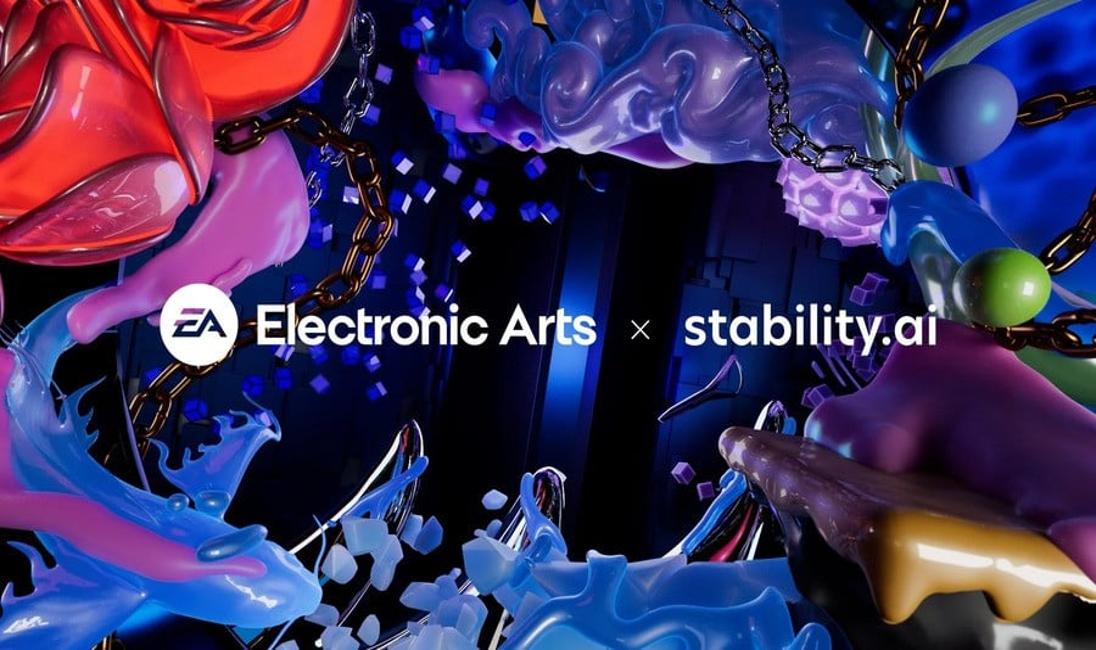Electronic Arts (EA), a name synonymous with gaming giants like FIFA, Battlefield, and Apex Legends, is diving headfirst into the AI pool. Yeah, I know what you're thinking – AI is everywhere these days. But this isn't just some superficial integration. EA's talking about a fundamental "reimagining" of how they make games. Big stuff. I mean, really big.
Now, the idea of AI influencing game development isn't exactly new. We've already seen it used for things like generating realistic character animations and creating dynamic, ever-changing game worlds. But EA's vision seems to go way beyond that. They're aiming to use AI to streamline the entire development process, from initial concept to final product. What could possibly go wrong?
It's a bold move, and honestly, a little bit unsettling. But also, I've got to admit, this part fascinates me. It raises all sorts of questions about the future of game development, the role of human creativity, and whether we'll eventually be playing games designed entirely by machines. Wild, right?
The Promise (and Peril) of AI-Powered Game Creation
So, what does this "reimagining" actually look like? EA hasn't released all the details, but they've hinted at a few key areas where AI will play a major role. One of the most promising is in content creation. Think about it: building a sprawling open-world game requires an insane amount of assets – textures, models, animations, sound effects. All that stuff takes time...lots of it. Speaking of taking time...
AI could potentially automate much of this process, generating realistic environments, characters, and objects with minimal human input. Imagine designers focusing on high-level concepts and strategic decisions, while AI handles the grunt work of bringing those ideas to life. Seems like a win-win, right?
But here's the thing: AI isn't magic. It's only as good as the data it's trained on. If EA's AI is trained on existing games, there's a risk that it will simply regurgitate familiar tropes and clichés. That could lead to a homogenization of game design, where everything starts to feel the same. And no one wants that. Also, the cost of developing it is high. Games market insights can help with that.
I initially thought AI would take the form of creating new NPC's or small background characters. But I was wrong.
Will AI Reshape Game Design?
Beyond content creation, EA is also exploring how AI can be used to improve gameplay. One possibility is using AI to create more intelligent and adaptive enemies. Instead of relying on pre-programmed patterns, enemies could learn from player behavior and adjust their tactics accordingly. This could lead to more challenging and engaging gameplay experiences. Think about a boss battle where the boss is constantly evolving, forcing you to adapt your strategy on the fly. Pretty cool, huh?
But there's a danger here, too. If AI-controlled enemies become too unpredictable, they could become frustrating and unfair to play against. Finding the right balance between challenge and fairness will be crucial. Wait, there's something even more interesting here...the idea of AI-powered storytelling.
Imagine a game where the narrative adapts to your choices in a truly meaningful way. Instead of just branching dialogue trees, the entire story could be dynamically generated based on your actions and decisions. This could lead to incredibly immersive and personalized gaming experiences. A story that really feels like it's yours. I find it hard to believe that EA is capable of doing this, but perhaps AI would force them to finally make the right choice.
But -- yes, there's always a "but" -- this raises some thorny questions about authorship and artistic intent. If the story is constantly changing, can it truly be considered a work of art? And who gets the credit for creating it? The human writers who laid the foundation? Or the AI that dynamically generates the narrative? These aren't easy questions to answer, and they're likely to spark some heated debates in the years to come.
The Human Element: Still Crucial?
Of course, the biggest fear surrounding AI in game development is that it will replace human developers altogether. And I get it. It's a valid concern. But I don't think that's likely to happen -- at least not anytime soon. The frustrating thing about this topic is that people treat AI as a simple tool. Instead it's an ever-evolving being with a mind of its own.
Game development is an inherently creative process. It requires imagination, intuition, and a deep understanding of human psychology. These are things that AI simply can't replicate (yet, anyway). Instead, I think AI will augment the abilities of human developers, freeing them from tedious tasks and allowing them to focus on the bigger picture. Think of it as a powerful new tool in their toolbox, not a replacement for their skills and expertise. And, honestly, that's probably the best-case scenario. One might be able to argue that EA needs all the help they can get.
Let me try to explain this more clearly. Imagine a team of architects designing a skyscraper. They could use AI to generate different design options, optimize the building's structure, and even simulate how people will interact with the space. But the architects would still be responsible for the overall vision, the aesthetic design, and the human experience. AI would simply help them bring their ideas to life more efficiently and effectively.
FAQ: AI in Game Development - What You Need to Know
How will AI change the types of games we play?
That's the million-dollar question, isn't it? The rise of AI in game development could lead to more personalized and dynamic gaming experiences. Imagine games that adapt to your play style, challenge you in new and unexpected ways, and tell stories that resonate with you on a deeper level. We might also see the emergence of entirely new genres and gameplay mechanics that are only possible with AI. The possibilities are pretty much endless. However, there's an equal chance that we see more games that are the same across the board. It's all up to EA and other gaming companies.
Won't AI just lead to generic, soulless games?
It's a valid concern. If AI is used carelessly, it could certainly lead to a homogenization of game design. But that's not inevitable. It all depends on how developers choose to use the technology. If they use AI to simply churn out generic content, then yeah, we're in trouble. But if they use it to enhance their creativity and push the boundaries of game design, then we could see some truly amazing things.
How does AI affect game testing?
AI is changing game testing by automating tasks like bug detection and performance analysis. AI-driven testing tools can simulate various gameplay scenarios, identify potential issues faster, and provide developers with insights to optimize game performance. This leads to more efficient testing, quicker development cycles, and ultimately, a better gaming experience for players.
Will AI take my job as a game developer?
Okay, let's address the elephant in the room. I don't think AI will completely replace human game developers anytime soon. Game development requires a lot of creativity, imagination, and a deep understanding of what makes a game fun and engaging. AI can assist with certain tasks, but it can't replicate the human element. Instead, I think AI will augment the abilities of game developers, allowing them to focus on the more creative and strategic aspects of their work. I also see it creating new jobs in the future. Just ask someone at Borderlands...
Is AI fair to all gamers?
This is an excellent question that raises important considerations about accessibility and inclusivity in gaming. If AI is used to create games that are too difficult or complex for certain players, it could exacerbate existing inequalities. It's crucial that developers use AI in a way that makes games more accessible and enjoyable for everyone, regardless of their skill level or abilities. This could involve using AI to create adaptive difficulty settings, personalized tutorials, or even entirely new gameplay modes that are tailored to different players' needs. The goal should be to use AI to create games that are fair and inclusive for all.
Ultimately, the integration of AI into game development is a double-edged sword. It has the potential to revolutionize the industry, but it also comes with significant risks. It's up to developers like EA to use this technology responsibly and thoughtfully, ensuring that it enhances human creativity rather than replacing it. If they can strike that balance, then the future of gaming could be very bright indeed.





















